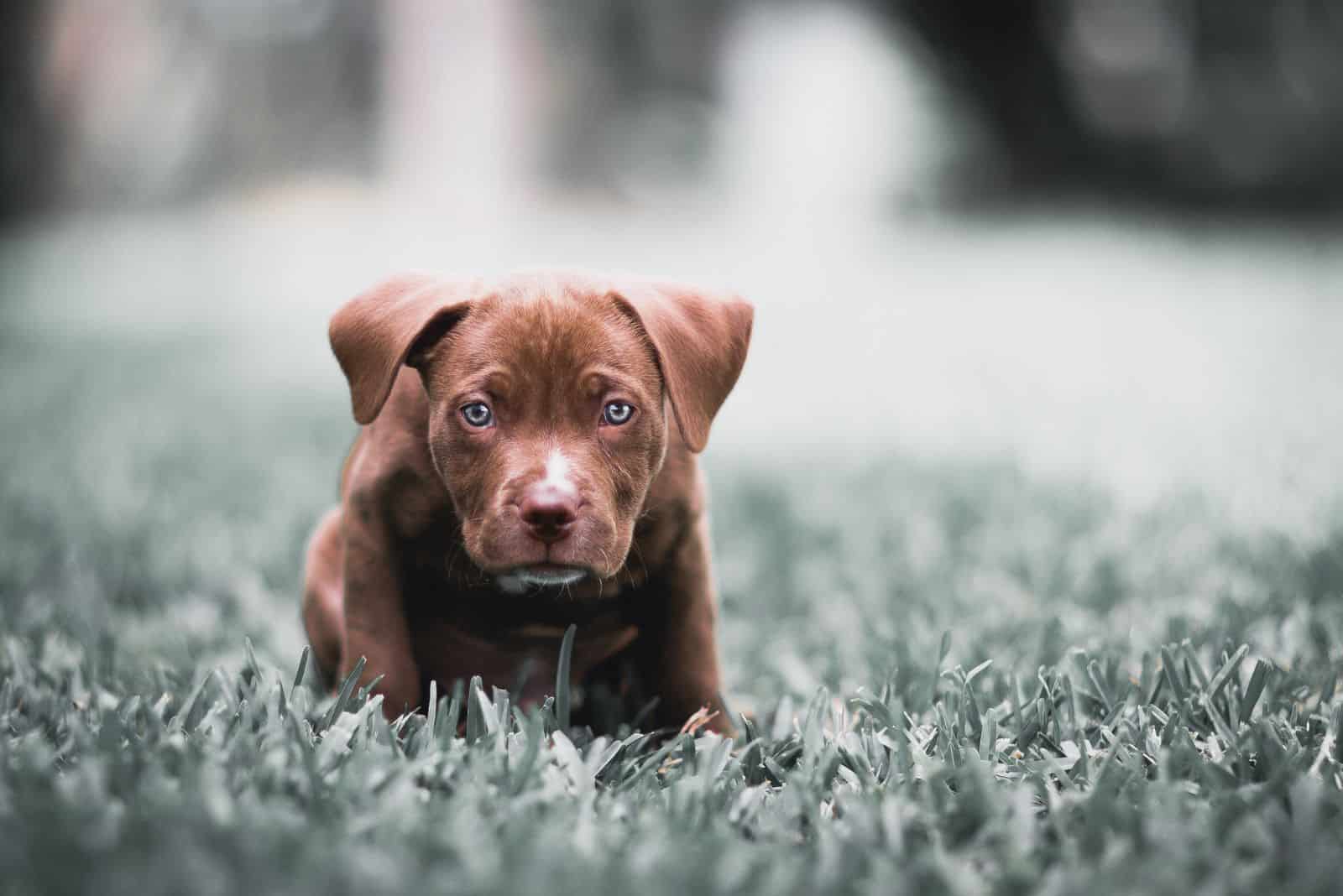How to train a Pitbull puppy not to bite is a common concern among Pitbull owners. These dogs have a reputation for being aggressive, but with proper training and socialization, they can make loving and loyal pets.
First and foremost, it’s important to understand that biting is a natural behavior for puppies of all breeds, not just American Pit Bull Terriers. It’s their way of exploring and learning about their environment.
However, it’s up to the owner to teach their Pitbull puppy that biting is not acceptable. Consistent training, positive reinforcement, and patience are key to successfully teaching your Pitbull puppy not to bite.
Additionally, socializing your Pitbull puppy with other dogs and people is crucial in building a well-behaved and well-adjusted adult dog. With these tips and a commitment to training, you can help your Pitbull puppy grow into a well-behaved and loving companion.
This article will provide 11 great tips that will show you how to train a Pitbull puppy not to bite.
How To Train A Pitbull Puppy Not To Bite
Pitbulls are known for their loyalty, strength, and energy, but these same characteristics can also make them prone to biting.
Teaching a Pitbull puppy not to bite can be challenging, but with patience, consistency, and the right training methods, it is possible to train your Pitbull puppy to have appropriate biting habits.
The key to successfully training a Pitbull puppy not to bite is to understand the reasons why it is biting in the first place. Puppies bite for a variety of reasons, including teething, exploring their environment, and seeking attention.
By addressing the root cause of the biting behavior, you can effectively teach your Pitbull puppy what is and is not acceptable behavior.
In this article, we will provide 11 great tips on how to train a Pit Bull puppy not to bite.
From letting your puppy spend time with its mother, to providing appropriate chew toys, to redirecting its attention, to making sure your puppy is well-fed, to neutering or spaying, to consistent training, to avoiding punishment, and being consistent.
These tips will help you to effectively train your Pitbull puppy not to bite, and ensure that you have a happy and well-behaved companion.
1. Let Your Pitbull Puppy Spend Time With Mommy
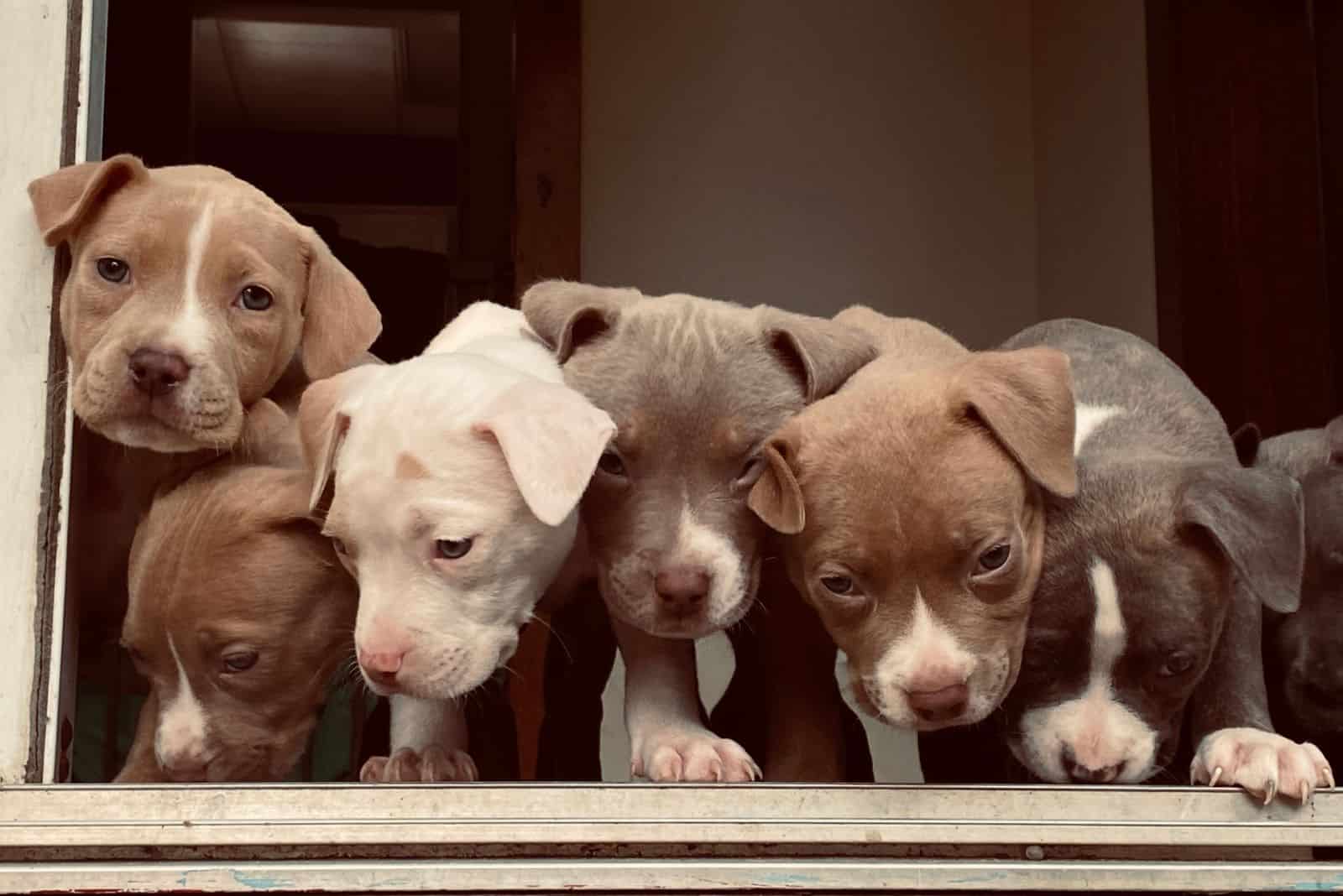
Allowing your Pitbull puppy to spend time with its mother will help it learn important socialization skills.
Puppies learn bite inhibition from their mothers and littermates, so the more time your puppy spends with its mother, the more likely it is to develop appropriate biting habits.
It is also beneficial for the puppy to learn bite inhibition from its mother and littermates before they are separated. Also, it’s essential that the mother should be well-trained and have appropriate biting habits herself.
2. Buy Teething Toys
As your Pitbull puppy grows, it will begin to lose its puppy teeth and grow its adult teeth. To help ease the discomfort of teething, provide your puppy with appropriate teething toys.
Chew toys that are specifically designed for teething puppies can help redirect biting behavior such as corn cobbing, and prevent your puppy from biting on inappropriate items.
Additionally, it can help to provide a variety of toys to keep your puppy entertained and mentally stimulated.
Also, consider freezing a wet washcloth or giving your puppy a frozen carrot to help ease teething discomfort. They can be in a significant amount of pain sometimes, which they can vocalize by yelping.
3. Don’t Let Your Pitbull Puppy Use Your Hands As Toys
It’s important to teach your Pitbull puppy from a young age that hands are not toys.
When your puppy starts biting or nipping your hands, firmly say “no” and provide its favorite toy for it to play with instead.
Consistently redirecting the puppy’s attention to the chew toys will help it understand what is appropriate to bite. This will help the puppy to understand that hands are not playthings, but they are to be respected.
4. Ignore Your Pitbull Puppy
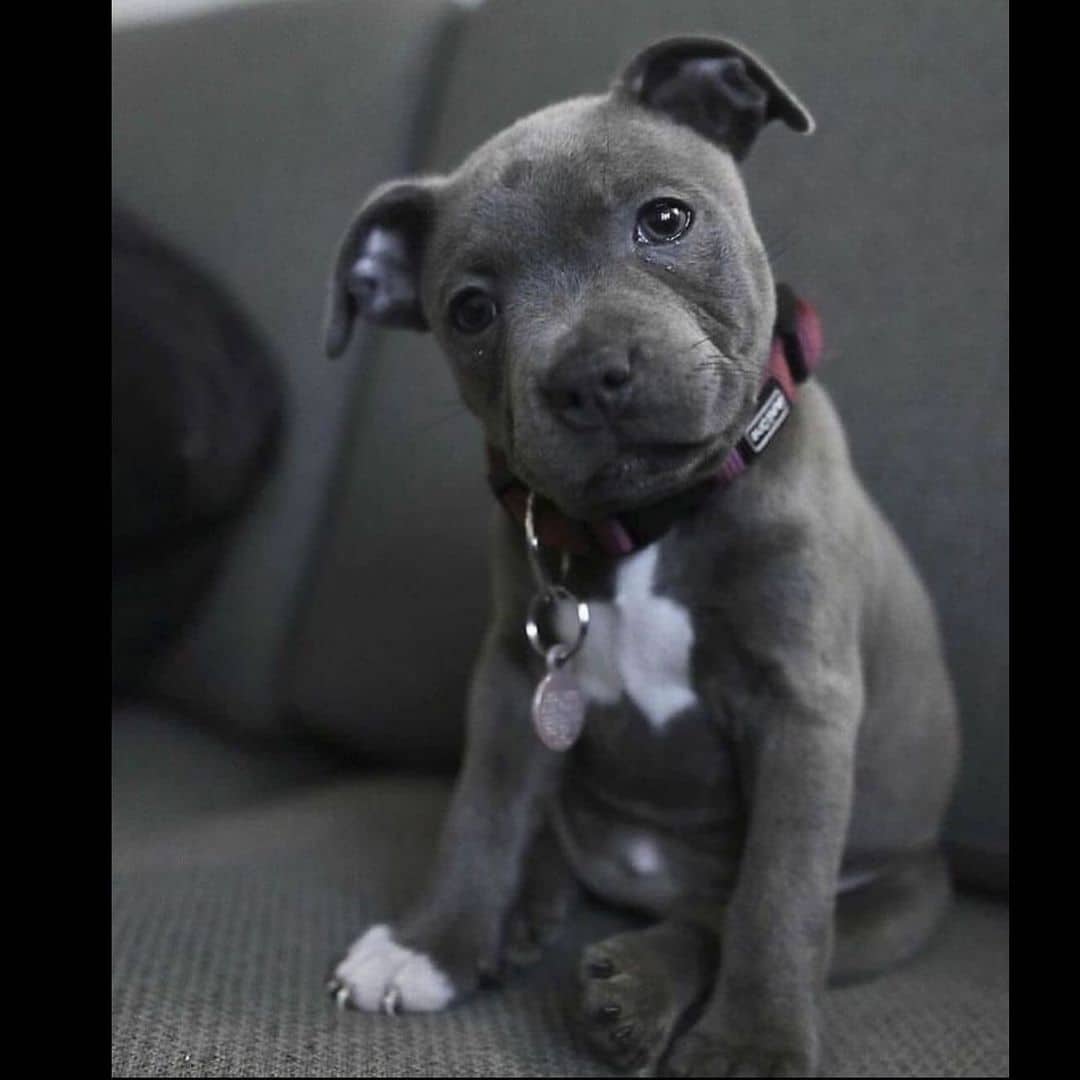
Ignoring your Pitbull puppy when it bites can be an excellent way to discourage the behavior. Sometimes it is best to just leave it and walk away.
By not giving your puppy attention when it bites, it will learn that biting does not result in positive reinforcement.
This method is particularly effective when combined with positive reinforcement when the puppy is not biting. It’s important to not give any attention, including negative attention like scolding, when the puppy bites.
5. Redirect Your Pitbull Puppy’s Attention
When your Pitbull puppy starts to bite, redirect its attention to an appropriate chew toy or activity. This can help your puppy learn that biting is not acceptable behavior and that there are better ways to expend its energy.
Biting is a natural behavior for puppies as they explore the world and learn about their environment. However, it’s important to teach them appropriate ways to use their jaws and teeth.
It’s important to redirect the puppy’s attention before it starts biting, or as soon as you notice it. This means paying close attention to your puppy and being aware of when it starts to show signs of wanting to bite.
As soon as you notice your puppy starting to chew on something it shouldn’t, or showing signs of wanting to bite, you should immediately redirect its attention to an appropriate chew toy or activity.
Additionally, it’s key to be patient and persistent when redirecting your puppy’s attention. Puppies are learning and it will take time for them to understand what is and isn’t acceptable behavior.
It’s important not to get frustrated or angry with your puppy and to be consistent in redirecting its attention every time it starts to bite.
6. Wear Your Pitbull Puppy Out With Exercise
Regular exercise can help tire out your Pitbull puppy and reduce its desire to bite.
Taking your puppy for a walk or playing something like tug of war with it in the backyard can help burn off excess energy and keep it from becoming bored and destructive.
It is also a great bonding opportunity for you and your puppy. Additionally, you can include obedience training in your exercise routine to keep your puppy mentally stimulated.
7. Make Sure Your Pitbull Puppy Is Eating Enough
Hunger can be a major cause of biting in Pitbull puppies. Make sure your puppy is getting enough food and that it is being fed at regular intervals.
A well-fed puppy will be less likely to bite, as it will have less need to explore its environment with its mouth. Also, it’s important to make sure your puppy is getting the right type and amount of dog food appropriate for its age and size.
8. Neuter Or Spay Your Pitbull Puppy
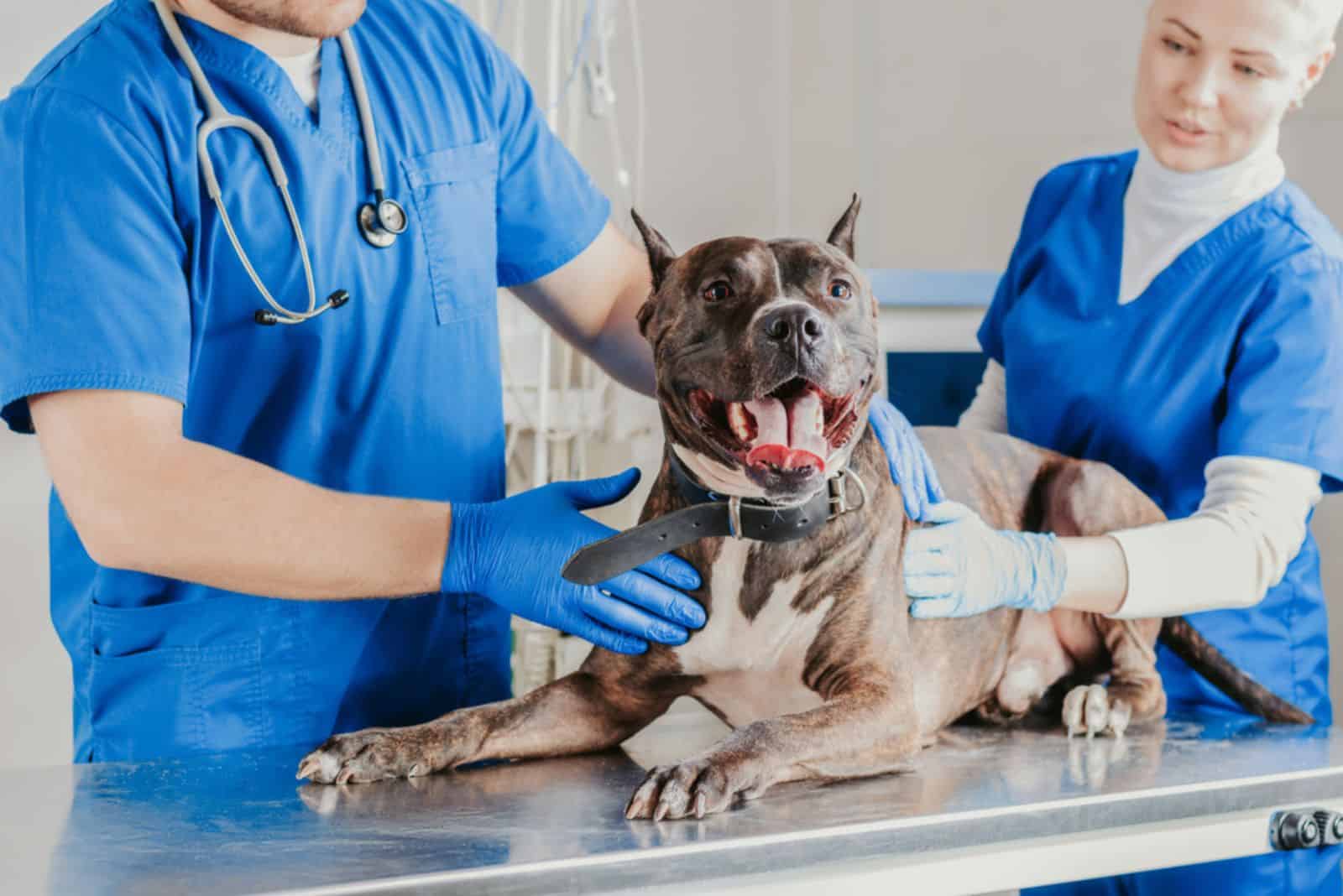
Neutering or spaying your Pitbull puppy is a surgical procedure that involves removing the reproductive organs of the animal.
This can help reduce its aggression and biting behavior by lowering the levels of hormones such as testosterone and estrogen.
These hormones play a major role in aggressive behavior and neutering or spaying can help decrease the impulses associated with them.
It’s important to talk to your vet to determine the best timing for the procedure. Factors such as the age, health, and behavior of your puppy should be considered when deciding when to neuter or spay.
Typically, puppies can be neutered or spayed as early as 8-10 weeks of age, but your vet can advise you on the best timing for your individual puppy.
Additionally, neutering or spaying can also have other benefits such as helping to prevent certain types of cancer and reducing the risk of certain behavioral issues.
However, it’s important to keep in mind that neutering or spaying does not solve all behavior problems, and other training and behavior modification techniques may be needed to address any issues.
9. Train Your Pitbull Puppy
Consistent training is key to successfully teaching your Pitbull puppy not to bite.
Teaching basic commands such as “sit”, “stay”, “come” and “drop it” can help to build trust and communication between you and your puppy.
Additionally, it’s important to set clear boundaries and rules for your puppy and make sure to consistently enforce them. You need to assert yourself as the dominant alpha pack leader and know when to put the puppy in a time-out.
Teaching your puppy to understand the difference between acceptable and unacceptable behavior is crucial in preventing biting.
While this can be applied to other forms of training, such as potty training and crate training, it is also quite useful when you want to prevent rough play and stop puppy biting.
Consistently rewarding good behavior and correcting bad behavior with positive reinforcement will help your puppy understand what is expected of it.
Training classes with a professional dog trainer can also be beneficial in helping you learn how to effectively train your Pitbull puppy. You can also check out the video below for some great training tips that can help you stop Pitbull puppy biting.
10. Avoid Punishment
Punishing your Pitbull puppy for biting can be counterproductive and can lead to fear and aggression.
Instead, use positive reinforcement techniques to teach your puppy what is and is not acceptable behavior.
Punishing your puppy for biting, such as hitting, scolding or yelling, can increase the puppy’s fear and anxiety, and can lead to more aggressive behavior.
It is important to understand that biting is a natural behavior for puppies, and it is up to the owner to teach them that it is not acceptable.
Positive reinforcement techniques such as praising and rewarding good behavior, and redirecting the puppy’s attention to appropriate chew toys, will be more effective in teaching your puppy what is acceptable behavior.
Additionally, it’s important to keep in mind that punishment is not always necessary and sometimes the best solution is to simply remove the puppy from the situation.
Related: 12 Best Shock Collars For Pitbulls: Easy Training Solution
11. Be Consistent
Consistency is key when it comes to training your Pitbull puppy not to bite.
It’s important to maintain consistent rules, routines, and training methods to help your puppy understand what is expected of it. This means setting clear boundaries and enforcing them consistently.
Also, it’s important to be consistent with the type of training methods you use, whether it be positive reinforcement or redirecting the puppy’s attention to appropriate chew toys.
Having a consistent training routine will make it easier for your puppy to understand what is expected of it and will help to prevent confusion and frustration.
It’s also important to be consistent with all members of the household so that everyone is on the same page when it comes to training the puppy.
Be patient and persistent, training a puppy takes time and effort, but consistency in training will help you see the results you want.
Myths About Pitbulls Biting
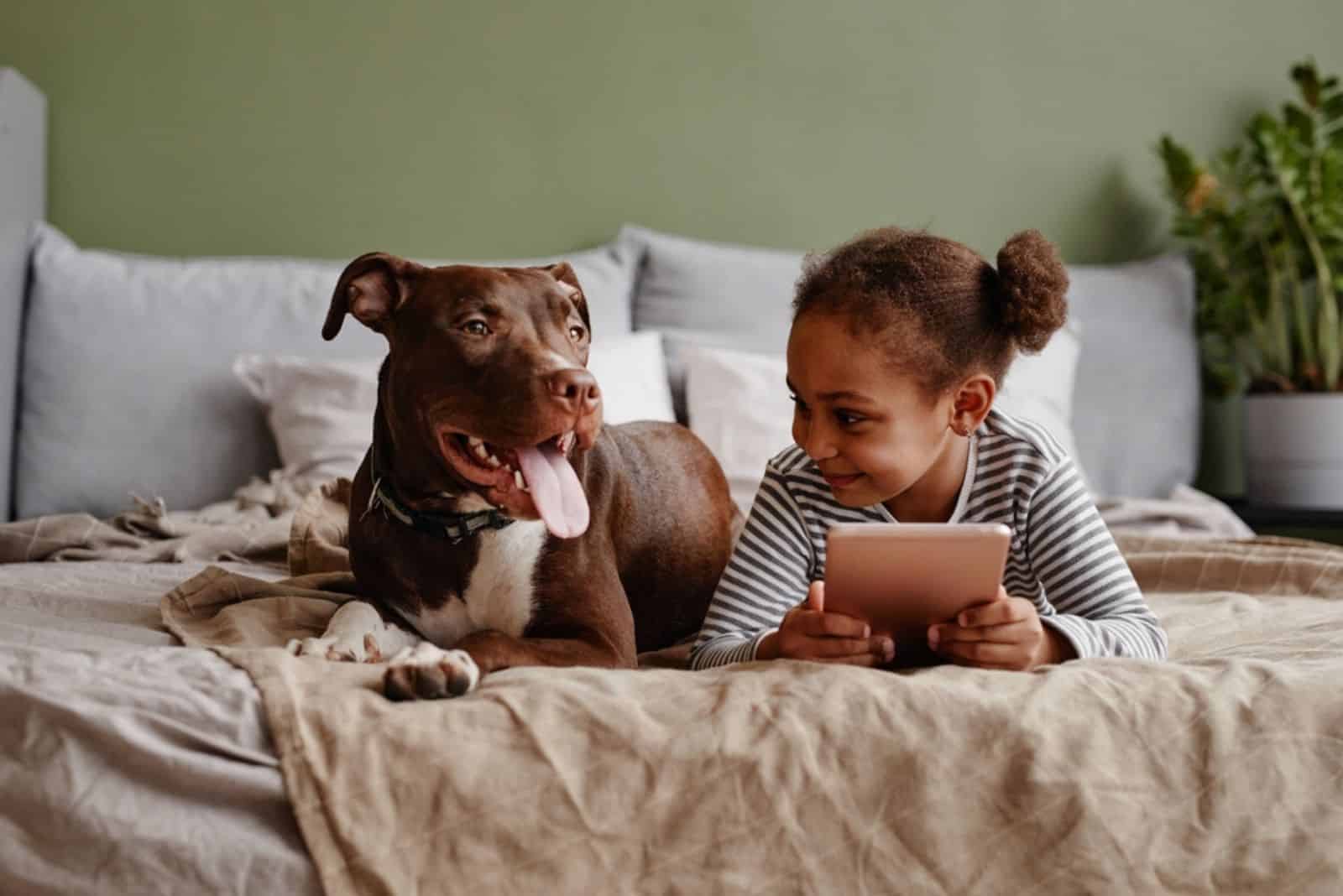
Pitbulls are often associated with negative stereotypes and myths, particularly when it comes to biting behavior. One of the most persistent myths is that Pitbulls are an inherently aggressive and scary breed.
However, this is not supported by scientific evidence and like any other breed, their behavior is shaped by their environment, how they are treated, and how they are trained.
Another popular myth is that Pitbulls have locking jaws, which makes them more dangerous than other dog breeds. This is not only untrue but also scientifically impossible.
It’s important to understand that these myths are not based on facts but on misperceptions and prejudices, and that Pitbulls can be loving and loyal pets when they are treated with love and respect.
Therefore, it is crucial to educate ourselves and base our opinions on facts rather than myths.
Are Pitbulls Inherently Aggressive?
One of the most persistent myths about Pitbulls is that they are inherently aggressive and dangerous dogs. This is an unfair reputation that follows this breed, along with perhaps American Staffordshire Terriers and American Bullies.
However, it’s simply not true. While Pitbulls can have strong personalities, they are not inherently aggressive and can be well-behaved with proper training and socialization.
Like any other breed, their behavior is shaped by their environment, how they are treated, and how they are trained.
A pitbull that is raised in a loving and nurturing environment with consistent training and socialization will be less likely to exhibit aggressive behavior.
Additionally, Pitbulls were originally bred as companion dogs, that’s why they are known for their loyalty and affection toward their owners.
Are Pitbulls More Dangerous Than Other Breeds?
Pitbulls are often stigmatized as being more dangerous than other dog breeds, but statistics do not support this claim. There is simply no conclusive evidence that Pitbulls are more dangerous than other breeds.
Additionally, it’s important to note that dog bites can be influenced by various factors such as training, socialization, and ownership. A well-trained and socialized Pitbull is no more dangerous than any other breed of dog.
Are Pitbulls Unpredictable?
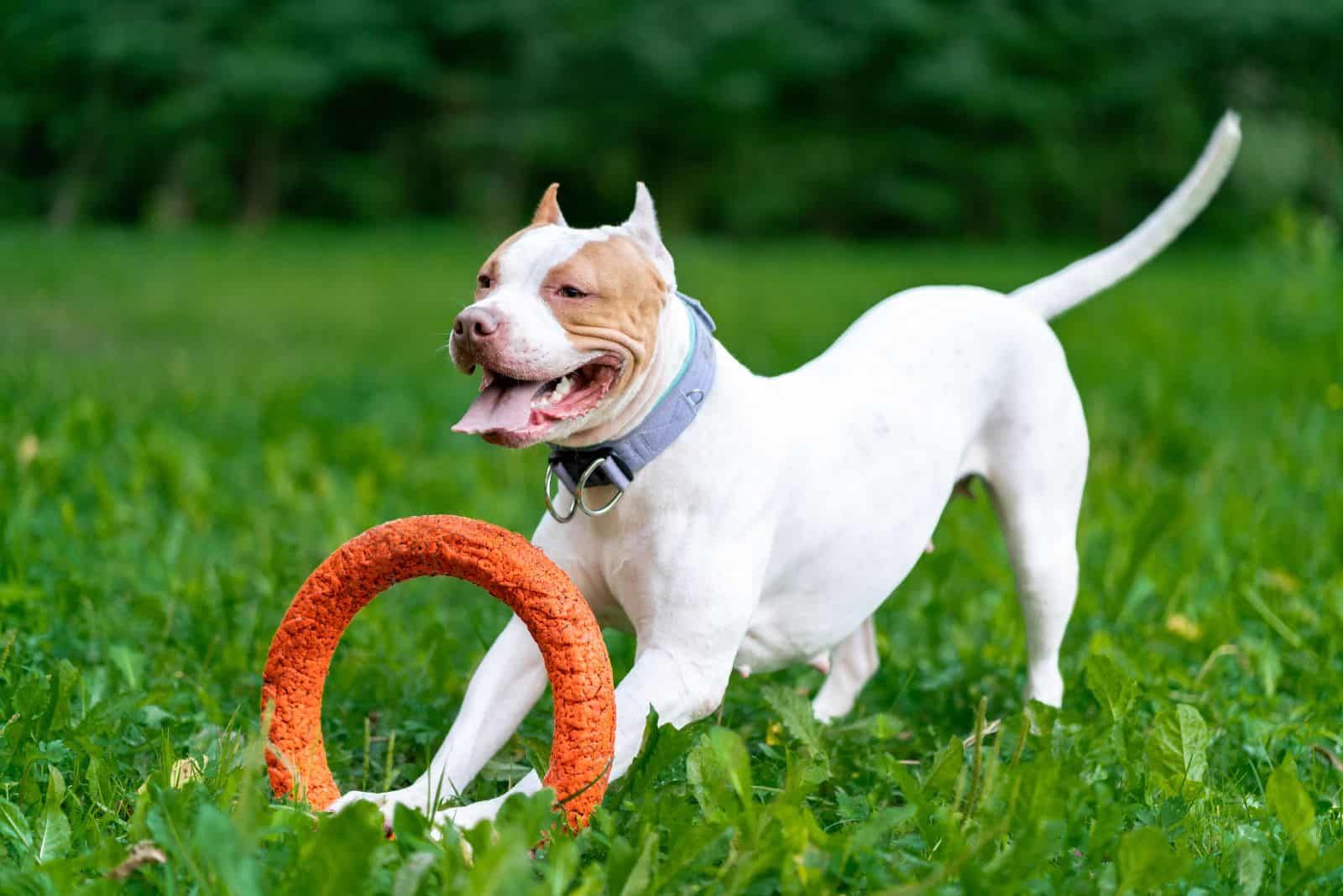
Pitbulls, like all dogs, can be unpredictable in certain situations, but with proper training, socialization, and care, they can be reliable and trustworthy companions.
This myth likely stems from the pitbull’s reputation as a “dangerous” breed. However, with proper training and socialization, Pitbulls can be just as reliable and predictable as any other breed.
They can be taught to respond to commands, and they can be socialized to be comfortable around people and other animals. Take them to dog parks during those formative early months of age for some social playtime and you will reap the benefits.
It’s important to remember that no dog is 100% predictable, but with proper training, socialization, and care, a Pitbull can be a loving, loyal and trustworthy companion.
Do Pitbulls Have Locking Jaws?
Another popular myth about Pitbulls is that they have locking jaws, which makes them more dangerous than other dog breeds. This is not only untrue but also scientifically impossible.
No dogs have jaws that can lock, and Pitbulls are no exception. The jaw of a Pitbull is no different from any other dog breed. The strength of a Pitbull’s bite is determined by the size and power of its jaw muscles, just like any other breed.
This myth likely originated from the fact that Pitbulls used to be bred for dogfighting, and people may have assumed that they had some kind of special jaw structure that made them better at fighting.
However, this is not the case. The idea of a “locking jaw” is a misperception and not supported by scientific evidence.
Is It Normal For Pitbull Puppies To Bite A Lot?
It is not normal for Pitbulls to bite a lot. Biting is a natural behavior for puppies, but as they grow and mature, they should learn appropriate biting habits.
Pitbulls, like any other breed of dog, can be trained to have appropriate biting habits. Biting can be a sign of a lack of training, socialization, or frustration.
It can also be caused by teething or exploring their environment. It is important to understand that biting is not a breed-specific trait and it can be influenced by various factors like genetics, environment, and training.
Consistent training and socialization can help prevent biting behavior in Pitbulls. Additionally, providing appropriate chew toys and redirecting their attention to appropriate items can help discourage biting.
If your Pitbull is biting excessively, it’s best to consult with a professional trainer or behaviorist to address the issue.
Is It Safe To Leave Children With Pitbulls?
It is not inherently unsafe to leave children with Pitbulls, but it is important to supervise any interactions between children and dogs, including Pitbulls.
Like any other breed of dog, Pitbulls can be well-behaved and loving companions if they are properly trained and socialized.
However, it’s important to remember that all dogs, including Pitbulls, can be unpredictable in certain situations and may bite if they feel threatened or mistreated.
Therefore, it is essential to provide proper training, socialization, and care for the Pitbull, and make sure that children understand how to interact safely with dogs.
It is also important to supervise any interactions between children and dogs and to teach children how to interact with dogs in a safe and appropriate manner.
This includes not disturbing a dog when it is eating or sleeping, not pulling its tail or ears, and not approaching a Pitbull that is tied up or confined.
Read Next: Why Does My Pitbull Sleep So Much: 9 Possible Reasons
Additionally, it is important to never leave young children alone with any dog, even a family pet, as children may not have the maturity and judgment to handle the situations that may arise.
Conclusion
In conclusion, how to train a Pitbull puppy not to bite is a concern that many Pitbull owners face.
As we have shown in this article, the key to successfully training a Pitbull puppy not to bite is consistency, positive reinforcement, and patience.
Teaching basic commands, providing appropriate dog toys, and socializing your puppy with other dogs and people are all important steps in building a well-behaved and well-adjusted adult dog.
It’s important to remember that biting is a natural behavior for puppies, but it’s up to the dog owner to teach them that it is not acceptable.
With these tips and a commitment to dog training, you can help your Pitbull puppy grow into a well-behaved and loving companion, even if you are a first-time owner of one of these energetic dogs.
Remember that training is an ongoing process, and it will take time and patience to see the desired results. After all, Pitbulls are a wonderful breed and with the right training, they can be a great addition to any family.
